
Quienes tenemos la posibilidad de visitar sitios, blogs y webs de distintas partes del mundo (en mi caso por mi trabajo como influencer redactando contenidos en italiano, inglés y español pero algo que también puede hacer cualquier usuario) hemos notado un detalle que, a veces, nos da un poco de fastidio al inicio si los banners son demasiado invasivos, es decir demasiado grandes.
Se trata de los banners obligatorios en la Union Europea relativos al derecho a la privacidad que tiene cada usuario.
En ese aspecto Europa, criticable en otros sentidos, por ejemplo la constante obstaculización por parte de los gobiernos y bancos, al desarrollo e implementación de las criptomonedas, es muy severa en lo que respecta al control de los datos personales.
No es una casualidad si verdaderos "monstruos sagrados" como Microsoft y Facebook han sufrido por parte de las autoridades de control de la Unión Europea multas muy pesadas. Por el simple motivo de no respetar las normas sobre la llamada "privacy" usadas en algunos casos casos con fines comerciales para proyectos de espionaje político, industrial, etc.
Sin embargo esa obligatoriedad no rige en el resto del mundo.
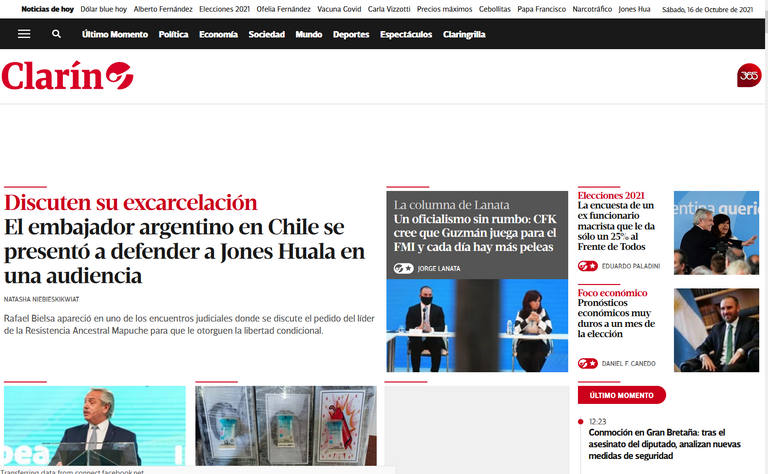
Those of us who have the opportunity to visit sites, blogs and websites from different parts of the world (in my case because of my work as an influencer writing content in Italian, English and Spanish but also something that any user can do) have noticed a detail that sometimes gives us a little annoyance at the beginning if the banners are too invasive, i.e. too big.
It is about the mandatory banners in the European Union concerning the right to privacy that each user has.
In this aspect, Europe, which can be criticized in other ways, for example the constant obstruction by governments and banks to the development and implementation of cryptocurrencies, is very severe in terms of control of personal data.
It is not a coincidence if real "sacred monsters" such as Microsoft and Facebook have suffered from the control authorities of the European Union very heavy fines. For the simple reason of not respecting the rules on the so-called "privacy" used in some cases for commercial purposes for political espionage projects, industrial, etc..
However, this obligation does not apply in the rest of the world.
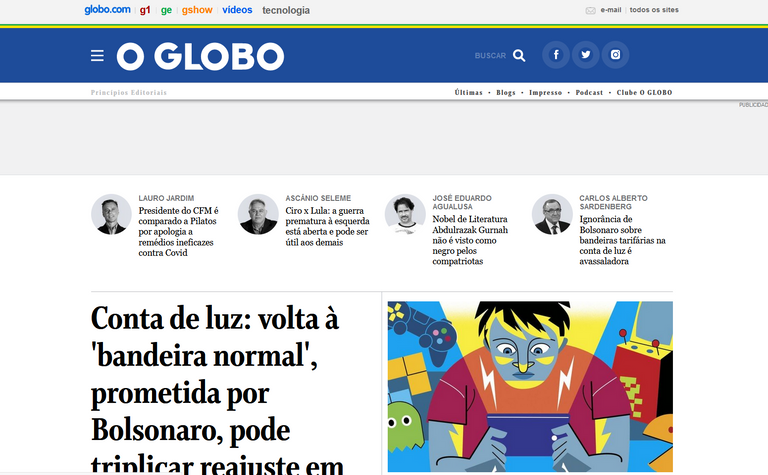
La legislación europea en materia de cookies. / European legislation on cookies.
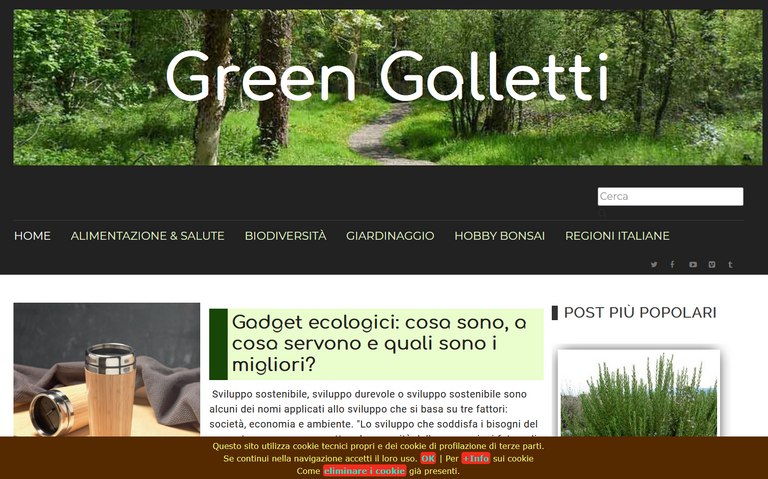
Estas normas agrupadas en la llamada Directiva ePrivacy (Directiva sobre la privacidad y las comunicaciones electrónicas), es una pieza legal fundamental para garantizar la privacidad de los datos en la Unión Europea, con el único objetivo de asegurar la privacidad online de los ciudadanos de la UE.
Es decir cuando se entra a visitar una página existe la obligatoriedad, bajo pena de severas multas, de informar al internauta como administra el titular de esa web los famosos cookies.
Voy a mostrarles un caso concreto, mi blog dentro de la plataforma Blogger abierto cuando todavía residía en Italia. Como pueden ver, en la parte inferior del mismo hay un banner informando el tratramiento de los datos que, por otro lado, deben estar publicados dentro de una página en el blog o web de referencia.
En las pestañas del banner coloreadas de rojo hay tres enlaces que llevan al visitanteen caso de desearlo- a informarse sobre como eliminar esos cookies, una mayor información sobre los mismos indicando el nombre del responsable y el correo electrónico para eventuales reclamos en Info y finalmente el botón para aceptar estas condiciones y hacer en OK.
En otro blog que tengo en inglés dedicado al bonsai la situación no cambia. No importa el idioma. Ni la plataforma. Lo que cuenta es el lugar desde donde se abrió el post. En mi caso, Italia, país integrante de la Unión Europea, y por lo tanto alcanzado por las normas.
Como pueden ver la forma del banner varia, pero el contenido y el objetivo es siempre el mismo.
Hasta nuestro querido DeepL Translator tan usado en la plataforma de #HIVE está obligado a exhibirlo. Por qué?
Porque DeepL en realidad es una empresa alemana -llamada DeepL GmbH, Maarweg 165, 50825 Cologne, Germany (“DeepL”) , radicada obviamente en Europa, tal como se desprende de los términosde uso en este enlace. Y por lo tanto debe respetar las normas europeas.
Incluso la privacidad de los datos personales en la Unión Europea ha sido incluída de los llamados derechos fundamentales de la Unión Europea.

These rules grouped in the so-called ePrivacy Directive (Directive on privacy and electronic communications), is a fundamental legal piece to ensure data privacy in the European Union, with the sole purpose of ensuring the online privacy of EU citizens.
That is to say, when you visit a website, it is mandatory, under penalty of severe fines, to inform the user how the owner of that website manages the famous cookies.
I am going to show you a concrete case, my blog within the Blogger platform opened when I was still living in Italy. As you can see, at the bottom of the blog there is a banner informing the processing of data that, on the other hand, must be published in a page on the blog or website of reference.
In the tabs of the banner colored in red there are three links that lead the visitor -if desired- to get information on how to delete these cookies, more information about them indicating the name of the responsible and the email address for possible claims in Info and finally the button to accept these conditions and click OK.
In another blog I have in English dedicated to bonsai the situation does not change. No matter the language. Nor the platform. What counts is the place from where the post was opened. In my case, Italy, country of the European Union, and therefore reached by the rules.
As you can see the form of the banner varies, but the content and the objective is always the same.
Even our beloved DeepL Translator so used on the #HIVE platform is obliged to display it. Why?
Because DeepL is actually a German company - called DeepL GmbH, Maarweg 165, 50825 Cologne, Germany ("DeepL") , obviously based in Europe, as is clear from the terms of use at this link. It must therefore comply with European regulations.
Even the privacy of personal data in the European Union has been included in the so-called fundamental rights of the European Union.
El perro guardián del mundo en el campo de la tecnología. / The world's watchdog in the field of technology.

Según una editorial del New York Times, que pueden consultar en este enlace Europa es el perro guardián del mundo en el campo de la tecnología.
Y atribuye el mérito de este resultado a la aplicación de la ley de cookies de la Unión Europea como también al más reciente y detallado Reglamento General de Protección de Datos (RGPD).
Y, sin embargo, estas normas no se aplican en USA. Es evidente que el lobby empresarial en los USA es más fuerte, en este sentido, que la intención del propio Parlamento.
En la normativa de la Unión Europea la llamada ley de cookies trata, básicamente, de poner un límite al uso de los datos personales que van desde la geolocalización geográfica desde donde está conectado hasta sus preferencias en visitar determinados contenidos en Internet.
Las páginas webs, generalmente responden, directa o indirectamente a empresas y proveedores de servicios que utienen acceso a nuestros datos digitales, y por lo tanto tienen la posibilidad de disponer y que hacer o no hacercon ellos sin nuestro consentimiento, con que propósitos y de qué manera.
Una práctica malsana que gira en Internet desde hace tiempo y para evitar la cuál hasta hora no se han implementado leyes en el mundo a no ser en la Unión Europea.
No es solo haciendo "pishing" que se roban datos, dinero, identidad anarquizando la web. Hay también un sinfín de actividades de las cuáles el usuario no tiene conocimiento que llevan ganancias e informaciones a empresas en forma si no ilegal al menos no autorizada. Esto se propone combatir la llamada Ley de los Cookies.
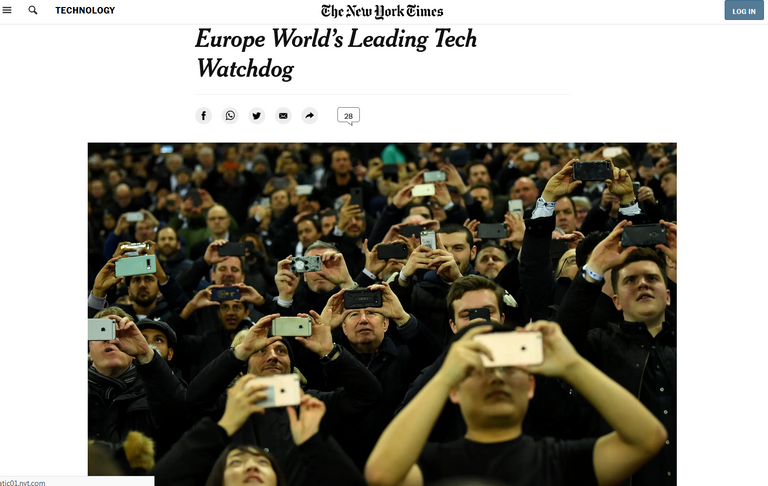
According to a New York Times editorial, which you can read at this link Europe is the world's watchdog in the field of technology.
And it gives credit for this result to the implementation of the European Union's cookie law as well as the more recent and detailed General Data Protection Regulation (GDPR).
And yet these rules do not apply in the USA. It is clear that the business lobby in the USA is stronger, in this regard, than the intention of the Parliament itself.
In the European Union regulations, the so-called cookie law basically tries to put a limit on the use of personal data ranging from geolocation from where you are connected to your preferences in visiting certain content on the Internet.
The web pages, generally respond, directly or indirectly to companies and service providers that have access to our digital data, and therefore have the ability to dispose and what to do or not to do with them without our consent, for what purposes and in what way.
An unhealthy practice that has been going on on the Internet for a long time and for which no laws have been implemented in the world so far, except in the European Union.
It is not only by "pishing" that data, money and identity are stolen by anarchizing the web. There are also countless activities of which the user is unaware that bring profits and information to companies in an illegal, if not illegal, at least unauthorized way. This is what the so-called Cookie Law aims to combat.
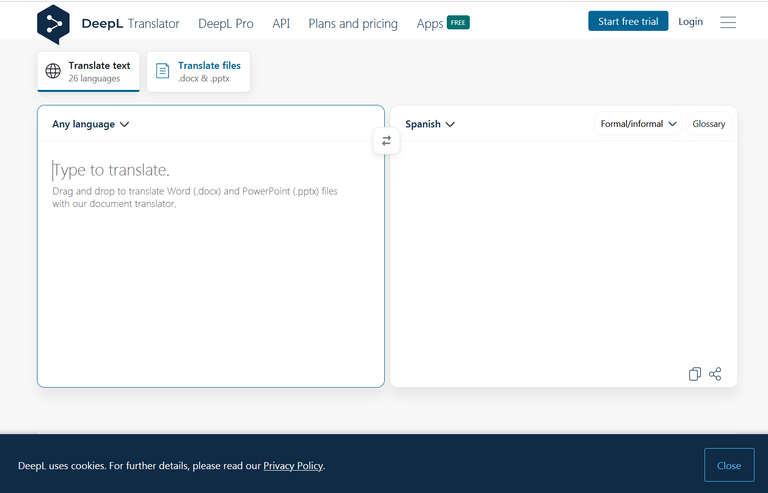

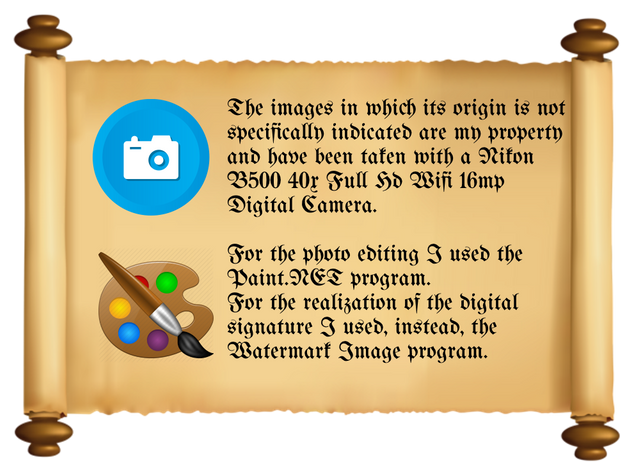 >
>
Los enlaces de mis sitios web/Links to my websites :

Upvoted. Thank You for sending some of your rewards to @null. Read my last posts to make sure that BLURT burning is profitable for you. Before using this bot please make sure your account has at least 100 BP. Get more BLURT:
@ mariuszkarowski/how-to-get-automatic-upvote-from-my-accounts@ blurtbooster/blurt-booster-introduction-rules-and-guidelines-1699999662965@ nalexadre/blurt-nexus-creating-an-affiliate-account-1700008765859@ kryptodenno - win BLURT POWER delegationNote: This bot will not vote on AI-generated content
Thanks!!